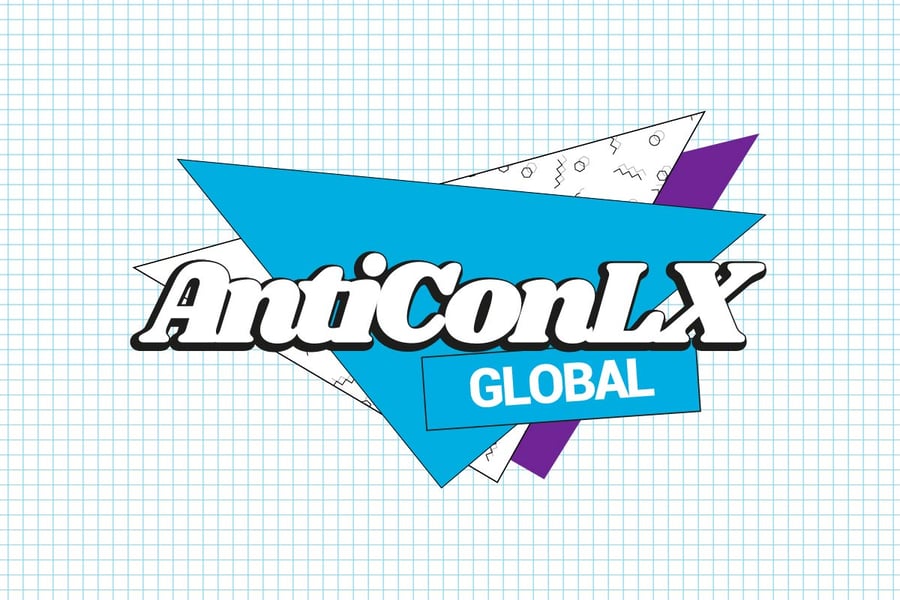Who needs a crystal ball, or a incredibly creepy ancient fortune teller in a tiny tent, or even a Ouija board, to tell us what the future looks like.
Instead, we've got three of the most forward-thinking voices in the industry today. So, chuck out the incense, pick a (business) card, and enjoy the show.

The panel, hosted by MarTech Alliance COO Richard Nolan, consisted of:
- Flavilla Fongang, Brand Strategist at 3 Colours Rule.
- Katrina Broster, Digital Performance Director at Dennis Publishing.
- Deon Pillay, Head of Marketing Operations at Legal & General Investment Management
Can we just step back slightly, look at the last 16 to 18 months, and think about some of the trends that we've seen, and the opportunities and challenges that you've faced?

Katrina: I think media and publishing has seen a huge change previously to the pandemic. But the pandemic period really turbocharged what you've had to deliver.
I have experience in the media and publishing industry, so apologies in advance if that's all I talk about. But I've got quite a lot lot to say.
It's been a very interesting two years for, for that sector. But to answer the question, in terms of the the opportunities, I mean, how long have we got a the most immediate one that comes to mind is the overnight change that we saw for digital subscriptions, the business that I currently work for, which is Dennis publishing, we've had a very successful digital marketing strategy for many years.
But as soon as we have the announcement in the UK about the first lockdown, just picture the most amazing graph that any marketer could ever possibly dream for. The spike was absolutely insane. And we found ourselves in the best position, but also the worst position that all of these demands just suddenly appeared overnight.
It's like people wanted to pay for content, people wanted access to digital products, whether that was an app, a newsletter, you know, personalised website recommendations. So the team adapted incredibly fast.
And we often had conversations with our finance team; we need more money, we can't capture all of this demand, no conversions are going through the roof. And so it was an incredible time, and our whole performance in 2020, and continuing to 2021. You could correlate our revenue performance with the state of the nation in terms of the lockdown and various restrictions, as that that was a huge opportunity.
And for me personally, and my team I joined the business in 2020, in January. So I was just getting started, and had lots of ideas, projects, which are in what I often say is the embryonic stage, we knew what we wanted to do, but we didn't necessarily have the people and technology that we needed. And whereas I thought at the start of the year, this is going to take nine to 12 months to come to fruition. It fast tracked it turbocharged in two to three months.
So one of the most interesting conversations I had in 2020 was at a strategy day we had in September. So restrictions are just lifted slightly. And we were going through all of the things that we wanted to achieve in 2021. And we kept coming to the same conclusion we need a CDP we can't do X Y Z until we had a CDP, and it had always been banded around as a potential for our company but had never really come to fruition.
We said, right, that's our the future of our digital business. That's what we need and the opportunity you know lies ahead of us. Selected a CDP. Got the right expertise in the business.
And yeah, an incredible year, very beneficial. And I'd say just to touch on the challenges was more operational, like making sure that we could move as quickly as demand was growing.
Deon, with your financial services hat on, what were the opportunities and threats over that period?

Deon: So the biggest challenge for me was I just started my team, so literally two months into forming this team, and have gone into lockdown. So to build this team, virtually, where budgets are being chopped by finance, as I'm sure most companies have the same challenges.
Having to pivot to a digital space very quickly, especially in the marketing events space, bringing in new technology, and having to fast track those processes to get them on boarded, to be able to deliver really compelling content, but also Virtual Reality type events, because clients were engaging, were getting tired of having zoom calls and all these virtual things, how do you make a differentiation with your marketing campaigns and your events.
So we found some great suppliers. And we were lucky, we're able to recreate the fast track some of the IT processes security processes. So it was a great benefit for us to bring in really good tech partners. The other piece was, you know, been looking, working with my team to look at the marketing tech stack and understanding what some of the challenges we have within the business, and what are the opportunities for us.
We know regulation has big always been a big thing within the financial space. And we see more regulation coming in from the regulator. So we work in different markets. So how you cross border marketing at the moment, and how you make sure you're compliant with that.
So really embracing Reg tech to mark to marry together with martech, to really create a great client journey.
How do you make sure your clients feel that they're getting the best value for their money?
So taking all these challenges, they're looking at what technology is available, but also considering your existing tech stack. And making interconnectivity. Make sure we're using the big data that we are talking about today, right? And really getting great insights from match really help your marketing, but also look at your content production, how you producing content, and how you're killing content, because we're very good at producing 80% more content in the last few years.
But what's actually happening with that content, along the whole client journey, what's your client looking at? And I'm lucky, I've used some great technology, where you actually see when the client opens, which pages they have touched, how much they're read. And that gives us great insights, then reach out to the client have the next conversation. It's about a tailored experience for each client that you're touching, every single day.
At 3 Colours Rule, what were your opportunities and challenges?

Flavilla: I mean, I think I want to talk first of all, from a personal point of view, and I think everybody relates. Everybody baked some banana bread, or even got a dog, everyone decided to get a divorce, or maybe something around reviewing in terms of how you spend your money.
But you know, what's interesting, because when I think about our own expense as a team, we were already living in the future. We were already hybrid, we would talk about being hybrid and working remotely. I always hated to be on the tube every morning.
So we allowed that flexibility. But from an agency point of view, working technology has been a positive, caring experience, more than they expected, in a good way.
But the changes as you mentioned, we've seen it as around health is been around finance, obviously we go towards a cashless, you know, environment, you know, I just use my phone when I shop, I'd like to take my cart.
And then and the last part is obviously mobility, everything if you think about in terms of how you build your product, mobile become very soon the centre focal point, whether you're serving b2b or b2c.
And one thing I would say that maybe companies don't do enough that agencies do, we're very collaborative, and a lot some of the campaign I've seen around the world you know, whatever the in tech or non tech or just mixture of non tech and tech companies is that they went together realise how we're going to make this work.
I don't know if any of you've seen this Burger King campaign that came out, when we couldn't go to any restaurant. So Burger King did a campaign with a with a supermarket to show you how you can make your own burger at home. And everyone was so clever and creative as if they win awards for that.
But some of the things I would say is that every company now realised that they need to have this tech capability to survive.
One of the elements we have seen is collaboration. As the black person in the room, we've also had to deal with things such as George Floyd, which has alerted people to the importance of purpose.
People just don't buy a product anymore. They want to see, what are you doing beyond just being a great brand?
And that's one of the messages I've always tried to emphasise for my clients that, what are we going to do beyond what our clients are expecting from us?
A question to ask yourself is, if you were in the shoes of your prospect, what would be a great experience, a great service? What can you do to surprise them tomorrow? So they can choose to buy from you again and again?
What your expectations for 2022?

Flavilla: As as a customer myself, I want a very personalised experience. But at the same time you will not give your data. So it's a case of "What do you want? Do you want to give your data or not?"
So I think people expect that element of on-demand, very responsive experience, I don't want to have the same experience as Tom who was six foot two, and I'm five foot three - five seven with heels.
But I want to have this personalised one to one experience where you can present what I want.
One thing that I would say to any marketer out there is to try to figure out what tools can use to actually help you focus on the creative element and experience where the where the rest of the day to day can be delegated.
How do some of the themes and topics from today's sessions match the trends that you've been thinking about in advance of the session today and in planning for 2022?

Deon: You know, all the sessions were brilliant, especially on the main stage.
Because so much of it actually resonated with me, it's the same themes we've been exploring for the last couple of years. But to see all be fast track is great, right?
So the big theme was about big data and what it actually means. How do you centralise your data? And how do you maximise the use of that data to get the analytics that you need to power your marketing solutions?
The other key piece, we talked about client journey and hyper personalised content, right, because we know traditionally, we span the entire world of marketing. But now we will be talking about who has the buying power? And how do you make sure you're targeting the right people at the right time with the right content.
So you create personalised content for different audience types to land your messaging. That was something that came across today, which goes back to the omni channel piece that everyone has been talking about.
Digital Futures, we know the future is digital, if you don't embrace it, you'll get left behind.
What I found really interesting, everyone's talking about the tech companies and martech. What people weren't talking about is how the financial industry will start to become disrupter, like the technology companies have become a disrupter.
What potentially will happen in the future is investment management, buying tech firms to enable them to go into that space, because that is a new space. That's very attractive, right? We've seen it before.
Our company is not just selling insurance. We're not just selling people's investments. We're not building houses. And what you're finding is more disrupters are entering the market. It's how do you diversify your portfolio? And that's where I see the biggest change coming in the future is where we start to play in your space and make you feel uncomfortable.

Katrina: I was gonna say spoiler alert.
I don't think there's any big new trends yet that that's my opinion. I think it's going to be a continuation of what over the past few years.
So again, speaking from a media and publishing perspective, and you similar to what we've just heard, and content is the driving force in any of those businesses strategy.
I think for me to, to really simplify it into four things, it would be first party data, but everything from identity management, particularly when you think about data walls, paywalls, etc. The depreciation of the third party cookie, if that, you know, comes back on the agenda.
And then moving on from first party data, of course, automation, personalization. So, of course, AI machine learning, that's a big focus for us. It's relatively in, I'd say, the early stages, but giving more autonomy to marketers to create really compelling journeys for our readers and our customers.
We're just so much more efficient by using machines and the new technologies that we now have access to such as that CDP, which I mentioned, we've now got the best possible view of our customers, which we just didn't have.
When you have some data in a DMP over here, some data in ESP there. So it's, yeah, it's fantastic to have that view.
And that really leads me on to the third point, which is multi-monetization. Many publishers have always focused on, "we're a subscriptions first business, or we're an advertising first business". And we're starting to see this amazing change in the industry where you can absolutely do both and affiliates and ecommerce, by the way, and coming up with a true customer lifetime value, which is just just based on one single revenue stream.
And then I'd say the fourth one, which will come as no surprise, it's digital product development.
So there is still this kind of unwritten, I guess, battle or race to get the best newsletters, the best apps, the best podcasts, and again, particularly for the sector, that I'm based in and like, that definitely seems to be where we're focusing into 2022.
Deon spoke about talent, and you spoke about leadership and building the skills within teams. Is there anything the audience should take away from today? The skills that they should be thinking about to grow their own careers?
Deon: Like I said, just the future is digital. Our current teams are not ready for it.
How do we enable our existing staff to get up the curve very quickly, you know, obviously, more technology become low code or no code.
But whilst we still getting on that journey, there's still code that's needed. So having people understand digital platforms, like even in the in the event space, when you use those platforms, you people know how to use them more effectively.
But also, we need to, you know, said earlier on, we should make sure we always hiring better people every single time. Because we are not irreplaceable, right?
Whenever I hire, I purposely hire someone that's 10 times better than me, because they are the future leaders of the business.
And if we can be solved, to keep hiring the clones of ourselves, you won't have a diversity, diversity of thought is so important in driving our businesses forward.
Where do you think we are in terms of diversity and inclusion in our industry?
Flavilla: Working in technology, I quickly realised the lack of diversity and we building products that are becoming more and more part of our lives.
And I remember being on Twitter one day, and saw this soap dispenser. When a white hand wanted soap, soap came out.
When a black hand waved, nothing happened. And there's an issue here. I'm conscious of our building system with unconscious biases. And for me, I worked on how on earth I can develop something that I can't see.
And I created TLA tech, London. One thing led to another, and we became a network of 1,500 members and much more Online.
And now we just releasing a book called Voices in the Shadow that will be distribute to schools for free, that tells the stories of black women in technology.
I find creativity in differences.
My team is 80%, female from all sorts of backgrounds. And we think so differently. That's why I arranged the way we create things. And that search for being uncomfortable is where, power is what I say. And that's one thing I would say that just be curious. It is a magic and learning keeps you happy.
If I type Deon Pillay into Google, it comes up as LGBT Great. What exactly does this mean?
Deon: So I became a visible role model in my industry, because we shy away from these conversations.
So I go back to when I first started my career in finance, there was very few ethnic minorities were visible, who were gay, right. So I'm a proud gay man. But it doesn't define who I am.
I want to be defined by the value I add to the business.
But what we recognise is that it's still a very difficult place for people of colour for, minority communities, however you identify with your sexuality, your gender preference, wherever that is.
But I always say to people, it's okay to get things wrong, but be curious and get it wrong.
And people don't engage because they scared of getting wrong, making mistakes and do things wrong, because they feel they'll be vilified for it.
What we all need to be doing is think about how we can be allies to each other in a place and create a safe space in our industries, where people can thrive and to be their authentic selves.
Because when I shared the burden of who I thought I was, and was hiding for 17 years, I found that I was better at doing my job. Because I was free of this burden and the lies.
I was able to be creative and come to work and be myself and really add value and have very open conversations, and being authentic leader.
And if all of us take that mindset of being human beings first, with human kindness, compassion, we could help make a massive, massive difference for everybody.
